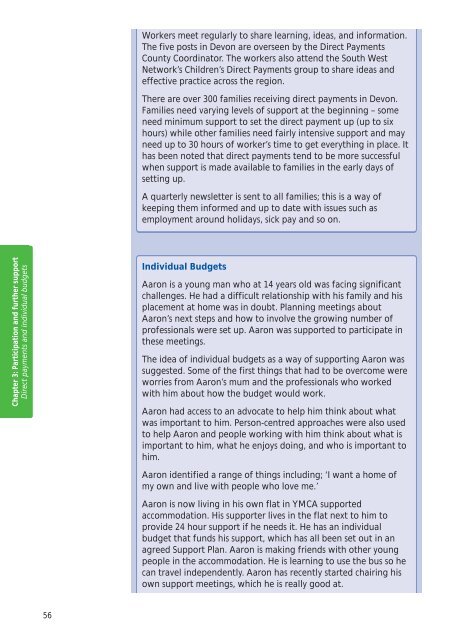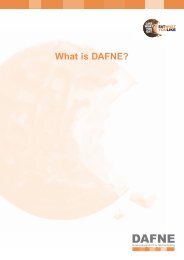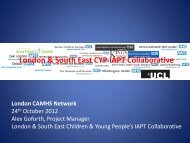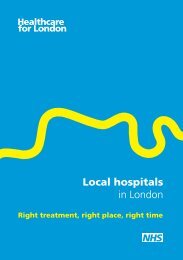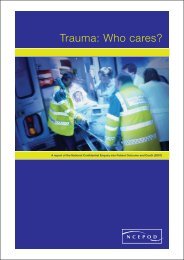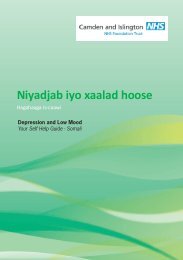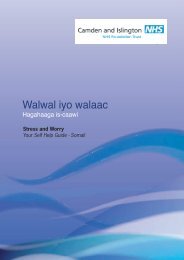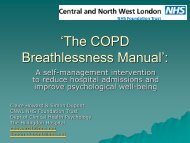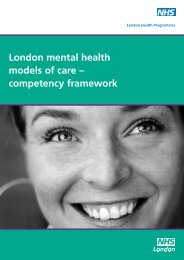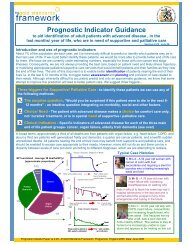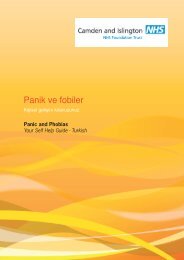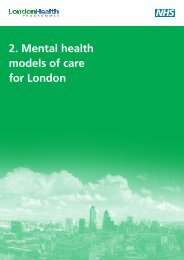A Transition Guide for All Services - Transition Information Network
A Transition Guide for All Services - Transition Information Network
A Transition Guide for All Services - Transition Information Network
- No tags were found...
You also want an ePaper? Increase the reach of your titles
YUMPU automatically turns print PDFs into web optimized ePapers that Google loves.
Workers meet regularly to share learning, ideas, and in<strong>for</strong>mation.The five posts in Devon are overseen by the Direct PaymentsCounty Coordinator. The workers also attend the South West<strong>Network</strong>’s Children’s Direct Payments group to share ideas andeffective practice across the region.There are over 300 families receiving direct payments in Devon.Families need varying levels of support at the beginning – someneed minimum support to set the direct payment up (up to sixhours) while other families need fairly intensive support and mayneed up to 30 hours of worker’s time to get everything in place. Ithas been noted that direct payments tend to be more successfulwhen support is made available to families in the early days ofsetting up.A quarterly newsletter is sent to all families; this is a way ofkeeping them in<strong>for</strong>med and up to date with issues such asemployment around holidays, sick pay and so on.Chapter 3: Participation and further supportDirect payments and individual budgetsIndividual BudgetsAaron is a young man who at 14 years old was facing significantchallenges. He had a difficult relationship with his family and hisplacement at home was in doubt. Planning meetings aboutAaron’s next steps and how to involve the growing number ofprofessionals were set up. Aaron was supported to participate inthese meetings.The idea of individual budgets as a way of supporting Aaron wassuggested. Some of the first things that had to be overcome wereworries from Aaron’s mum and the professionals who workedwith him about how the budget would work.Aaron had access to an advocate to help him think about whatwas important to him. Person-centred approaches were also usedto help Aaron and people working with him think about what isimportant to him, what he enjoys doing, and who is important tohim.Aaron identified a range of things including; ‘I want a home ofmy own and live with people who love me.’Aaron is now living in his own flat in YMCA supportedaccommodation. His supporter lives in the flat next to him toprovide 24 hour support if he needs it. He has an individualbudget that funds his support, which has all been set out in anagreed Support Plan. Aaron is making friends with other youngpeople in the accommodation. He is learning to use the bus so hecan travel independently. Aaron has recently started chairing hisown support meetings, which he is really good at.56


